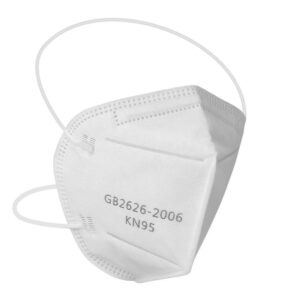Orchard Health Care will offer its members Covid-19 booster #2 clinics with Moderna vaccine in May. Anyone over age 50 is eligible, as well as those younger with immunodeficiency, as just announced by the FDA and CDC. We will set and announce the dates later in April.
Why another booster? Why in May?
Data has accumulated for the last six months that Covid-19 vaccine efficacy even after a single booster fades (but hardly disappears) after 4-6 months, depending on the population. While we are gliding into a lower disease risk period this spring and summer, there is widespread concern about a resurgence of disease with the Omicron BA.2 variant, or even another variant, in late summer or early fall. Giving a second booster in mid-to-late May should see our patients through that period (August to October) with enhanced protection.
What about the fall?
Though few specifics are available, the major vaccine companies are at work on new vaccines that may more robustly attack the SARS-CoV-2 virus at more locations than just the spike protein. It is hoped the new vaccines will be more effective against the current strains (including the BA.2 variant of Omicron that is rapidly becoming prevalent) or other as-yet-unseen variants. It is likely, therefore, that this Moderna booster will be the last of this particular formulation and that entirely new vaccines will be distributed in the fall. If so, we will administer one in fall clinics most likely along with influenza shots.
I had Covid-19 this year. Isn’t that enough?
No. If you were not previously vaccinated, the Covid-19 disease provides adequate immunity for perhaps 3 months, but does not thereafter prevent reinfection nor serious disease without actual vaccination. If you were vaccinated and have a breakthrough infection, you do get enhanced immunity subsequently for at least three months. These persons likely should still get a follow-up booster in 4-6 months.
Antiviral and preventive antibody therapy is available
The Pfizer drug Paxlovid is readily available by prescription since early February. It consists of 3 pills taken twice daily for 5 days and is highly effective in treating active cases of Covid-19 within the first five days of onset. Paxlovid is approved for anyone with higher risk of adverse outcome, including everyone over age 65 and anyone with immunosuppression or other diseases that predispose to more severe illness. We prescribe the drug promptly when we are aware that you are ill. Walgreens and many other pharmacies now have stock. There is no cost to the patient. We have used Paxlovid now with two patients with excellent, prompt results.
Also, Evusheld injectable monocloncal antibodies are available through the Gothams network organized by DPH or through major hospitals for preexposure protection of immunocompromised patients who do not respond to the vaccines. We have had several patients protected in this fashion.
Finally, monoclonal antibody infusions remain available to treat active severe cases early on. We can request the treatments through the same channels as Evusheld.
What else to remember?
Life is relative risk. People can make their own decisions about how much risk to undertake. Older people may choose to take less risk, younger more risk. Wearing effective face masks still represents prudent behavior in many settings, even as we pass the second anniversary of the Covid-19 pandemic in the U.S. Here are some examples along with our estimate of relative risk and rational behavior:
- Outdoors is safe: We now will have six months of good outdoor weather. Enjoy. It is close to impossible to contract Covid-19 outdoors. No masks needed.
- Indoors may not really be safe: It is still advisable, in our judgment, to usually wear an effective face mask indoors.
- Market Basket and its crowds, which likely include many unvaccinated, is a moderate risk without a mask in our judgment, safe with one.
- Going to a small clothing store or sparsely populated large, high-ceilinged store is reasonably safe. Masks optional.
- Symphony concerts with a largely vaccinated crowd for 2 hours with a good mask is low risk because the environment likely is low risk.
- Dining in a small North End restaurant without a mask is at least a moderate risk. Dine outdoors where possible, no masks needed.
- Gathering in your home with friends and family without masks most likely is fine, especially if vaccinated. Here the risk should be low and normality is valuable.
 Wear a real mask if using one: Cloth masks are not particularly effective, especially against current variants. They were promoted only when nothing else was available. The CDC website has good mask information. And your local drugstore likely has a decent supply of noncounterfeit masks.
Wear a real mask if using one: Cloth masks are not particularly effective, especially against current variants. They were promoted only when nothing else was available. The CDC website has good mask information. And your local drugstore likely has a decent supply of noncounterfeit masks.
- Please get KN-95 masks for general use when masks called for. These are the ones with ear loops and that closely conform to your face. They are comfortable to wear.
- Consider N95 for higher-risk occasions like plane trips. These are tighter fit with two straps that go behind the head and neck. They are most effective.
- Use surgical masks only in low-risk surroundings. The loose fit on the sides means you protect others much better than you are protected.
- Get vaccinated if you are not: While revaccination may be annoying as are typically mild breakthrough infections, it remains crystal clear that the overwhelming proportion of hospitalizations and deaths from Covid-19 occur among the unvaccinated. That is real. Remaining unvaccinated is a long-shot bet for no medical upside and major downside risk.

 Wear a real mask if using one: Cloth masks are not particularly effective, especially against current variants. They were promoted only when nothing else was available. The CDC website has good mask information. And your local drugstore likely has a decent supply of noncounterfeit masks.
Wear a real mask if using one: Cloth masks are not particularly effective, especially against current variants. They were promoted only when nothing else was available. The CDC website has good mask information. And your local drugstore likely has a decent supply of noncounterfeit masks.

Thank you for this update!
Some questions:
You mention the Moderna vaccine, not the Pfizer vaccine. Does this imply recommendation for one over the other?
If earlier doses were the Pfizer vaccine, do you recommend the second booster be with the Moderna or Pfizer?
I understand your suggestion for a second booster in mid-May. However, if one is planning travel sooner than that, and it has already been six months since the first booster, what are your thoughts about moving up the date of the second booster?
What are your thoughts about the length of time between the booster and travel?
Thanks once more!
Sue
Sue,
We only can administer the Moderna vaccine because the Pfizer vaccine comes packed in quantities too large for us to practically administer without likely wastage.
Switching among mRNA vaccines is acceptable but not necessary. There is no compelling difference in outcomes yet reported by either approach.
If you were going to a high-risk area, then booster before going would be rational. If only an airplane flight, use the N95 mask. It takes about a week for the higher antibody levels to be reached after the booster.
Another thanks, for your clarifications.
—Sue